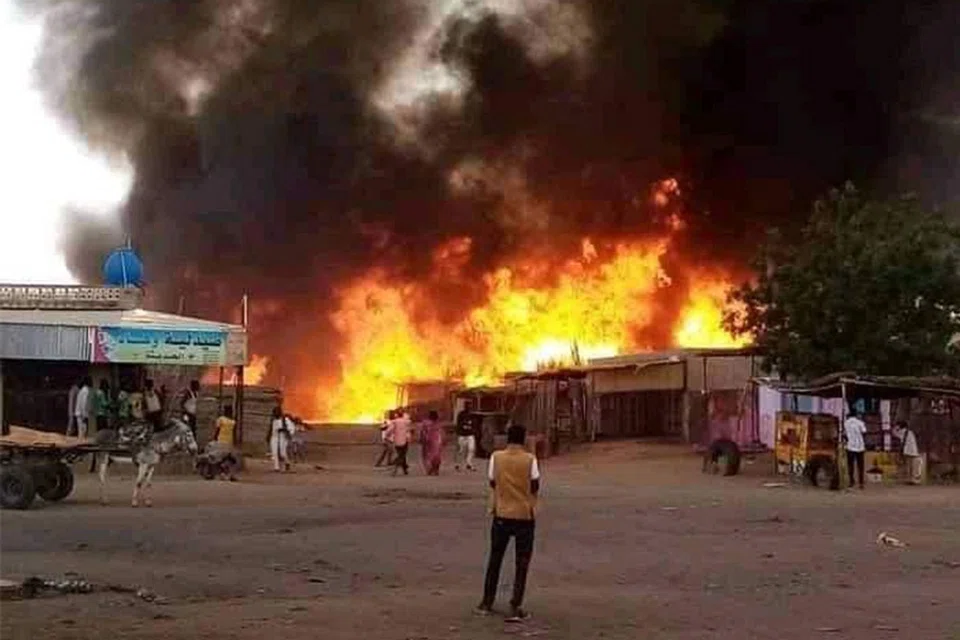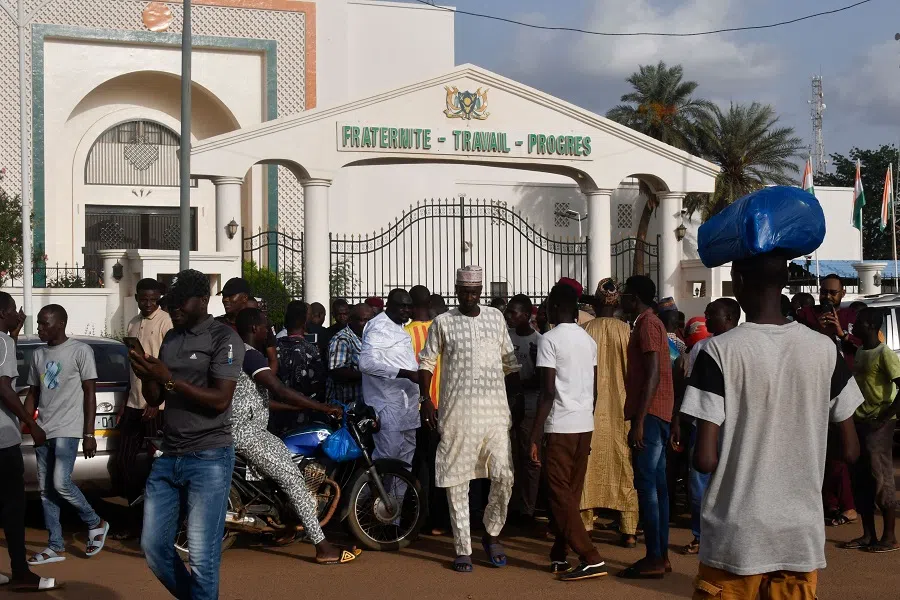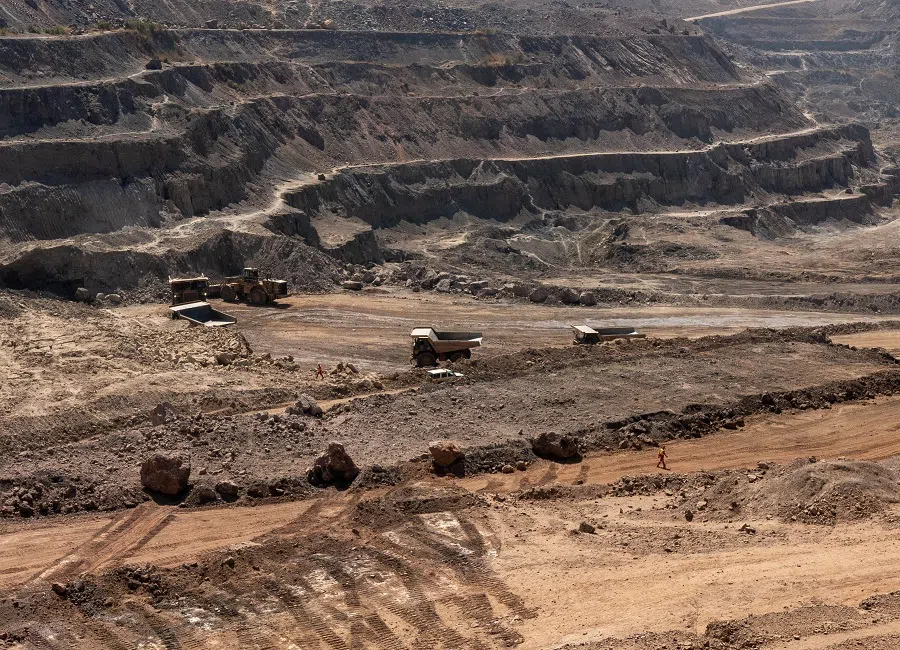China's African ambition comes with mounting challenges
The recent 15th BRICS summit held in South Africa heralded an expanded organisation with new African members. While China seeks to increase its presence and influence on the African continent, it also faces the difficult task of juggling security and development, particularly given that Russia is likewise adamant about safeguarding and expanding its own interests in the area.

As the echoes of the 15th BRICS summit continue to reverberate in South Africa, heralding an expanded organisation that will include two African countries Egypt and Ethiopia, a stark reality persists: Chinese workers remain vulnerable to attacks across the continent.
On 1 September, a harrowing incident unfolded in the Democratic Republic of the Congo (DRC), claiming the lives of two Chinese nationals during an assault on a convoy transporting gold. Just months prior, the Central African Republic (CAR) witnessed the cold-blooded murder of nine Chinese miners. Amid these troubling incidents, Africa faces additional crises, including recent coups in Gabon and Niger, the proliferation of terrorist organisations, and the ignition of a civil war in Sudan.
Precarious conditions
These tragic events serve as a stark reminder that China must grapple with the complex challenge of balancing security and development in Africa. Furthermore, the future of the Russian paramilitary Wagner Group since the demise of its leader Yevgeny Prigozhin, is complicating Beijing's threat matrix in the region.
The increasing dim prospects in several regions in Africa, are deeply intertwined with the nefarious effects of climate change, new waves of migrations and the spike of staple prices since the Russian full-scale invasion of Ukraine.

The recent unrest in Gabon marks the latest in a string of coups in Africa in recent years, following those in Niger, Mali, Burkina Faso, Guinea, Chad and Sudan, in what is known as "Africa's coup belt". The increasing dim prospects in several regions in Africa, are deeply intertwined with the nefarious effects of climate change, new waves of migrations and the spike of staple prices since the Russian full-scale invasion of Ukraine. These events stand as dire warnings that the menace of criminal and political violence against Chinese nationals in Africa is poised to escalate further.
However, the critical question remains: Will the group's expansion truly elevate Africa's economic prospects with the backing of the BRICS' New Development Bank, or will the security-development nexus continue to rest on precarious ground?
Economic and security uncertainties
Moreover, Beijing cannot count on the financial largesse that was at its disposal during the inception of the Belt and Road Initiative (BRI). According to the Wall Street Journal, growing concerns about China's long-term growth trajectory prompted several investment banks to trim their GDP growth forecasts to below 5% for the year.

While the new economic stimulus launched by Beijing is aimed at resuscitating the Chinese sluggish real estate sector and the internal market, the BRI will not witness new macro projects, especially in high-risk areas.
In this respect, the threat matrix is expanding especially for the Chinese state-owned enterprises (SOEs) as China is transitioning the SOE project model in the African region from contractors to investors, a model called "integrated investment, construction, and operation" (IICO).
According to Hong Zhan, a SAIS CARI expert on Chinese infrastructure investment, the Chinese companies working as contractors for the construction of infrastructure projects, are increasing their responsibility in the operation when the project is running. As a result, the likelihood of operational risks rising is imminent.
Even though the BRI is now etched into China's constitution, and Beijing aims to fortify its African foothold, the escalating insecurity forces Beijing to reconsider project viability, shifting its focus to safer regions.
While Beijing approved new projects valued at US$8 billion in Egypt, a new prospective BRICS member, the recent developments from Niger to Sudan have raised doubts about the future of Chinese economic diplomacy in the Sahel region. Even though the BRI is now etched into China's constitution, and Beijing aims to fortify its African foothold, the escalating insecurity forces Beijing to reconsider project viability, shifting its focus to safer regions.

At the same time, the slaughter of Chinese miners in the DRC and CAR, alongside other attacks along the BRI, raises doubts about China's viable options to safeguard its overseas citizens. These incidents lay bare the expanding chasm between China's economic ambitions and its foreign security apparatus, a patchwork composed of local military and private entities tasked with protecting Chinese labourers.
Wagner Group and Russia factor
In this respect, the "expected" sudden demise of Yevgeny Prigozhin, head of the Russian mercenaries Wagner Group, is fanning the flames of instability in several African countries and creating additional complications to Beijing crisis management scenarios.
According to several Western security pundits, the delayed decapitation of Wagner Group's leadership, occurring two months following the armed uprising, implies a deliberate strategy aimed at preserving vital assets for the Russian regime, especially in Africa: a private army operating across several African countries, as well as a lucrative revenue stream derived from oil fields, gold and diamond mines, arms trafficking, and military training. It's no coincidence that Prigozhin was in Africa, overseeing Wagner's stranglehold on gold mines, just before his fateful flight to St Petersburg.
... the evolution of the Wagner Group in Africa will also influence the relationship between Putin and Xi.

As a result, attention has shifted towards the promises of "armed stability" made by the Wagner Group and how Chinese companies will manage their relationship with the growing footprint of Russian mercenaries. While it is premature to make assumptions about the potential danger presented by splinter mercenary groups or the emergence of a Wagner franchise led by different leadership, one undeniable fact is that the evolution of the Wagner Group in Africa will also influence the relationship between Putin and Xi.
Beijing seeks assurances from Moscow, yet, in the near term, Chinese companies in Africa are pressed to seek a workable middle ground. The fate of the Wagner Group remains uncertain, with the potential for swift shifts. Nevertheless, the enduring consequences of the wider presence of mercenaries and private military entities from Cairo to Cape Town are already constraining Beijing's geopolitical calculations. Economic development and security policy must advance hand in hand.
Related: BRICS expansion a sign of shifting global governance and security architecture | Domino effect in West Africa: Niger coup destabilises China's expanding economic footprint | China's urgent need to safeguard lives and investments along BRI | Can China do more to protect its interests in Sudan? | Sudan conflict: China and Russia have different interests | Is the US subverting China's influence in the DRC?





